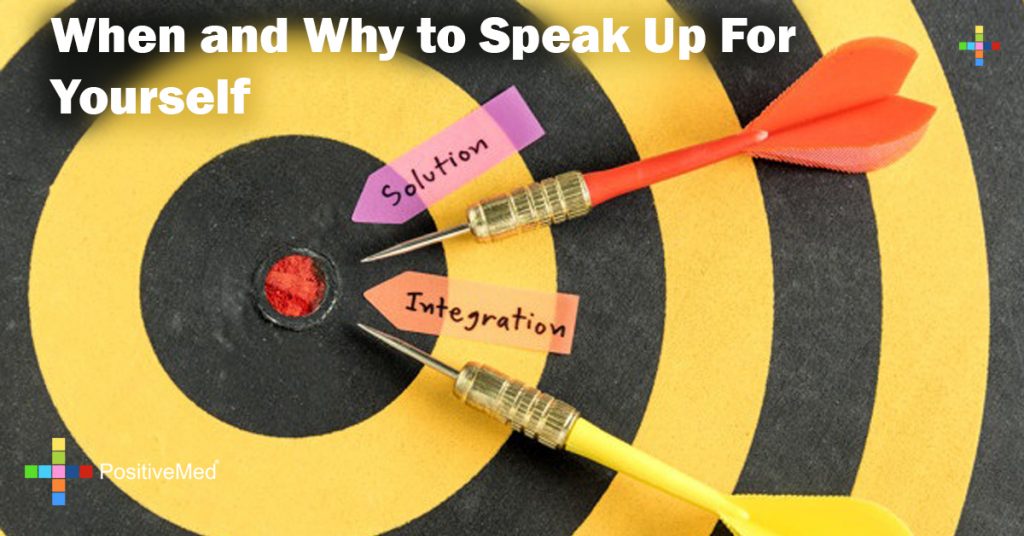
When and Why to Speak Up For Yourself
Are you confused about if and when to speak up for yourself?
The question to ask yourself is: “Are you speaking up for yourself to take loving care of yourself, or to change the other person?”
For example, let’s say that your partner is angry and critical toward you. It doesn’t feel good to you to be treated this way. Do you speak up? Of course! But your intent in speaking up is vital to understand.

If your loving adult is in charge, then you could speak up for yourself and open to learning:
“It hurts me when you speak to me this way. There must be a good reason you are being so angry and critical. Can we talk about it?”
If you already know that your partner isn’t going to be open in the moment, but might be open later, then you could speak up for yourself and lovingly disengage:
“This is hurting me so I’m going for a walk. I’ll be back in 15 minutes and maybe we can talk about it then.”
If you know that your partner isn’t going to open to discussing it, then you could speak up for yourself and loving disengage, by saying;
“This is hurting me so I’m going for a walk.”
If you know from past experience that saying anything when your partner is angry and critical only leads to more abusive behavior, then you might not want to say anything. You might just want to disengage and take loving care of your feelings. In this case, verbally speaking up isn’t loving to yourself. Your silence and disengaging are sending a loud enough message to your partner.
In all of these examples, you are not trying to change your partner – you are taking loving care of yourself.
However, if your wounded self is in charge, wanting to control your partner, then you might say:
“You have no right to speak to me that way. You need to stop being so mean.”
Your wounded self might believe that this is speaking up for yourself, but it’s not – it’s an attempt to control your partner. This will likely inflame the situation and lead to further hurt.
In order to speak up for yourself with the intent to take loving care of yourself, you have to fully accept your helplessness over your partner’s intent and behavior. While much can be learned when both of you are open to learning, nothing can be learned when one or both of you are closed, and there is nothing you can do about your partner being closed. Once you accept this, then you can speak up for yourself and lovingly disengage, or just lovingly disengage.
I like to think of it as being a mother lioness for my inner child. She needs me to speak up for her and take loving action for her so that she won’t get further hurt by an unloving interaction. What she doesn’t need me to do is try to change the other person, which only puts me more into the line of fire. She wants me to be in reality and fully accept my helplessness over others’ intent and behavior. Before I understood this, I used to spend much energy trying to change others, only to end up feeling unseen and unloved. Seeing and loving myself means to take my inner little one out of the line of fire whenever there is no way to learn with the other person.
This is what makes my inner child feel loved by me.
 By Dr. Margaret Paul
By Dr. Margaret Paul
Margaret Paul, Ph.D. is a best-selling author, relationship expert & Inner Bonding® facilitator. She has counseled individuals & couples since 1968. She is the author/co-author of eight books, including the internationally best-selling Do I Have To Give Up Me To Be Loved By You?, Healing Your Aloneness, Inner Bonding, and Do I Have To Give Up Me To Be Loved By God? She is the co-creator of the powerful Inner Bonding® healing process, recommended by actress Lindsay Wagner and singer Alanis Morissette, and featured on Oprah, as well as on the unique and popular website Inner Bonding & of the transformational self-healing/conflict resolution software program, SelfQuest®. Click here for a FREE Inner Bonding course.





